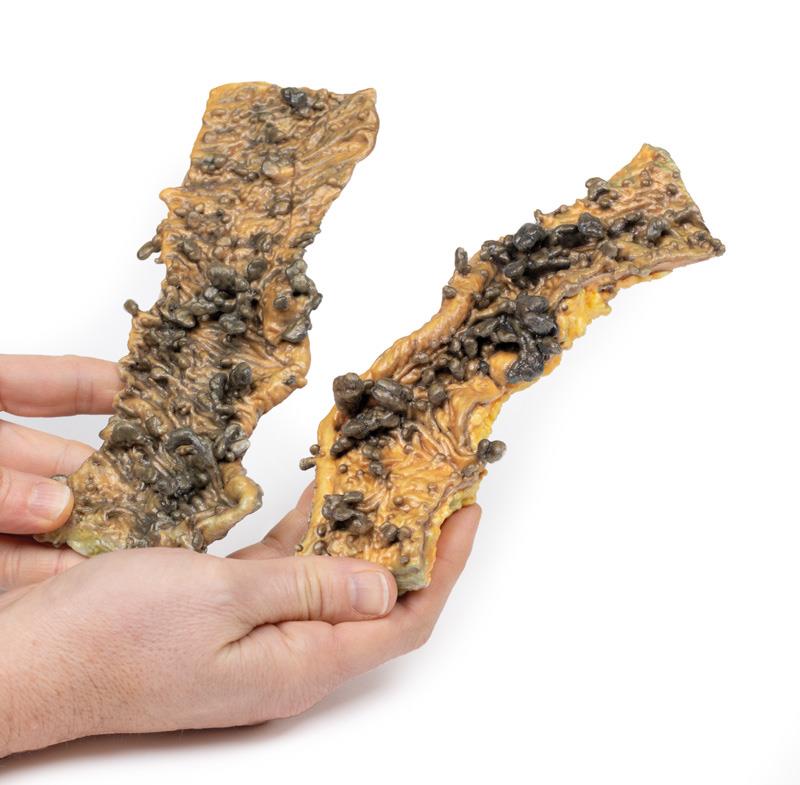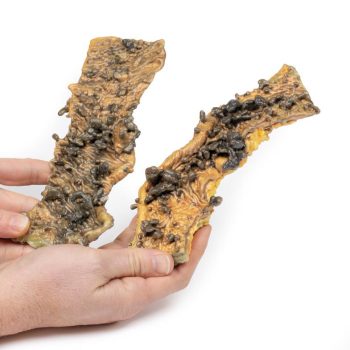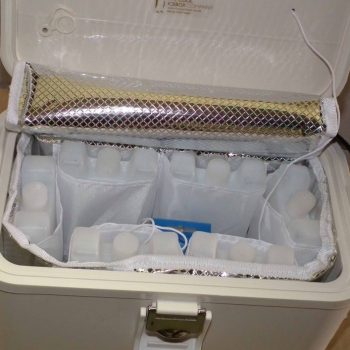Product information “Multiple Polyposis Coli”
The specimens from this case consists of two segments of sigmoid colon. The mucosa of the bowel is studded with numerous sessile and pedunculated partially pigmented polyps up to 1.5 cm in maximum diameter. There is no macroscopic evidence of malignant change.
Note
Microscopically, the polyps are most commonly tubular adenomas (>75% have a tubular structure; also called adenomatous polyps). Less frequently, they are villous adenomas (>75% have villous morphology) or tubulovillous adenomas (25-75% villous). They can have varying grades of dysplasia. The histological appearances are identical to sporadic colonic adenomas.
Patients with familial adenomatous polyposis (FAP; a form of hereditary colon cancer syndrome involving the APC gene located on chromosome 5q21) are offered prophylactic colectomy because invasive adenocarcinoma is almost certain to develop in one or more of the polyps, usually about 15 years after the onset of the adenomatosis. This condition is transmitted as an autosomal dominant trait.








